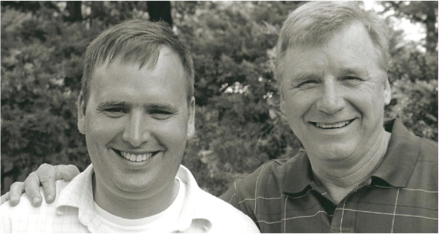
Launching the Data-Driven Justice Initiative: Disrupting the Cycle of Incarceration
By Lynn Overmann, Senior Advisor to the U.S. Chief Technology Officer
Today, America’s largest mental health facilities are often our local jails. With seven times more people with mental health problems in jails or prison than there are in mental health treatment facilities, local police, emergency medical teams, and jails across our Nation have become the front lines for people in mental health crisis, and, too often, the only response. While local police and sheriff’s departments are increasingly teaching their officers how to safely and effectively respond to people in crisis, law enforcement alone cannot solve the complex social, medical, and behavioral health issues of some of our Nation’s most vulnerable people.
“[O]ur criminal justice system isn’t as smart as it should be. It’s not keeping us as safe as it should be. It is not as fair as it should be. Mass incarceration makes our country worse off, and we need to do something about it.”
To answer the President’s call, and building on the Administration’s work to reform the criminal justice system and increase access to mental health and substance abuse treatment, we are proud to launch the White House Data-Driven Justice Initiative (DDJ) with communities across the country. Today, a diverse, bipartisan coalition of 67 city, county, and State governments — supported by non-profit organizations, private sector companies, foundations and universities — have begun sharing solutions that are having significant impact in reducing jail populations, and are committing to expand and scale these innovations. One local innovation driving dramatic change is the way several jurisdictions are using data to identify and divert people with mental illness out of the criminal justice system and into coordinated care in their communities.
“My recovery was a miracle. But if we are really going to help people who lived what I lived, the recovery process can’t just be a miracle. It has to be a part of the way we do business, it has to become a part of the norm.”

Or ask Pete Earley, a well-known author and mental health advocate, who struggled to get his son Kevin the help he needed after a cycle of psychotic episodes, resulting in five hospitalizations and an arrest. Pete tried for years, in vain, to get his son help, but finally it came down to one police officer — who had received specialized training on how to respond to people in mental health crisis — who changed the whole situation for Kevin and his family. When that officer encountered Kevin, who had removed his clothing and was running down the side of the road during another psychotic break, the officer calmly talked Kevin into his police car and then helped connect Kevin to a mental health provider who gave him the treatment he needed. Today, Kevin holds two jobs and lives independently.
Why does this matter to me? I started my career as an assistant public defender in Miami and saw from the inside how ill-equipped the criminal justice system is to help people with mental illness. Many of my clients had mental health issues, but they lacked access to required mental health services. As a result, these clients often spent weeks or even months in jail waiting for placement in the treatment facilities they needed, frequently locked up for far longer than they would have served if they had simply taken a plea to the charges that brought them into the criminal justice system in the first place. Instead, my clients with mental illness were housed in conditions in jails the U.S. Department of Justice (DOJ) described as “chaotic, crowded, foul-smelling, depressing, and unacceptable for housing prisoners who are mentally ill.” The system was broken.
But Miami, which used to have a jail system so bad that DOJ found the conditions unconstitutional, has transformed the way it treats people with mental illness. By providing critical mental health de-escalation training to Miami police and 911 dispatchers, over the past five years, Miami-Dade police have diverted more than 10,000 people away from jail and into treatment. Responding to nearly 50,000 calls to help people in mental health crisis, police made only 109 arrests, the county jail population dropped by 40 percent, allowing the county to close an entire jail facility and saving the county a stunning $12 million a year. Recidivism rates for the people receiving treatment dropped from 72 percent to 20 percent.
It is not just Miami. Knoxville, TN Police Chief David Rausch has seen the benefits of community based services first hand: “There was nothing more demoralizing to my officers than coming across the same people over and over again and knowing the only thing they could do was to take them to the ER or book them into jail. They never got better, and often got worse.” For Chief Rausch, this was a public safety issue. “People with untreated, serious mental illness can be quite vulnerable, especially when they are homeless. We saw them being victimized when they were on the streets.” Eight years ago, the Knoxville Police Department starting working with the Voluntary Ministry Center, an interfaith non-profit organization that provides housing and supportive services to people with mental illness, substance use disorders, and other challenges. Today, more than 950 people have been provided housing and over 50,000 have received case management and other key services.
“Arrests have dropped,” says Chief Rausch, “and my officers are thrilled to know they have a place to take people where they will get the help they need.”
We thank the communities for answering the President’s call and joining the Data-Driven Justice Initiative to both learn from communities like Miami and Knoxville, as well share innovations their teams have developed. This new community of practice is committed to sharing best practices as each region works towards achieving outcomes that are more effective and humane than repeated arrest and incarceration. Listen to DDJ stakeholdersand read more here about DDJ and the commitments made by non-profit organizations, private sector companies, foundations, and universities to help. It will take hard work to reverse the decades of policy and funding decisions that have resulted in jails acting as de facto mental health facilities, but today marks a significant step forward. If you would like to join DDJ or commit to help, please go to: www.whitehouse.gov/DataDrivenJustice.



